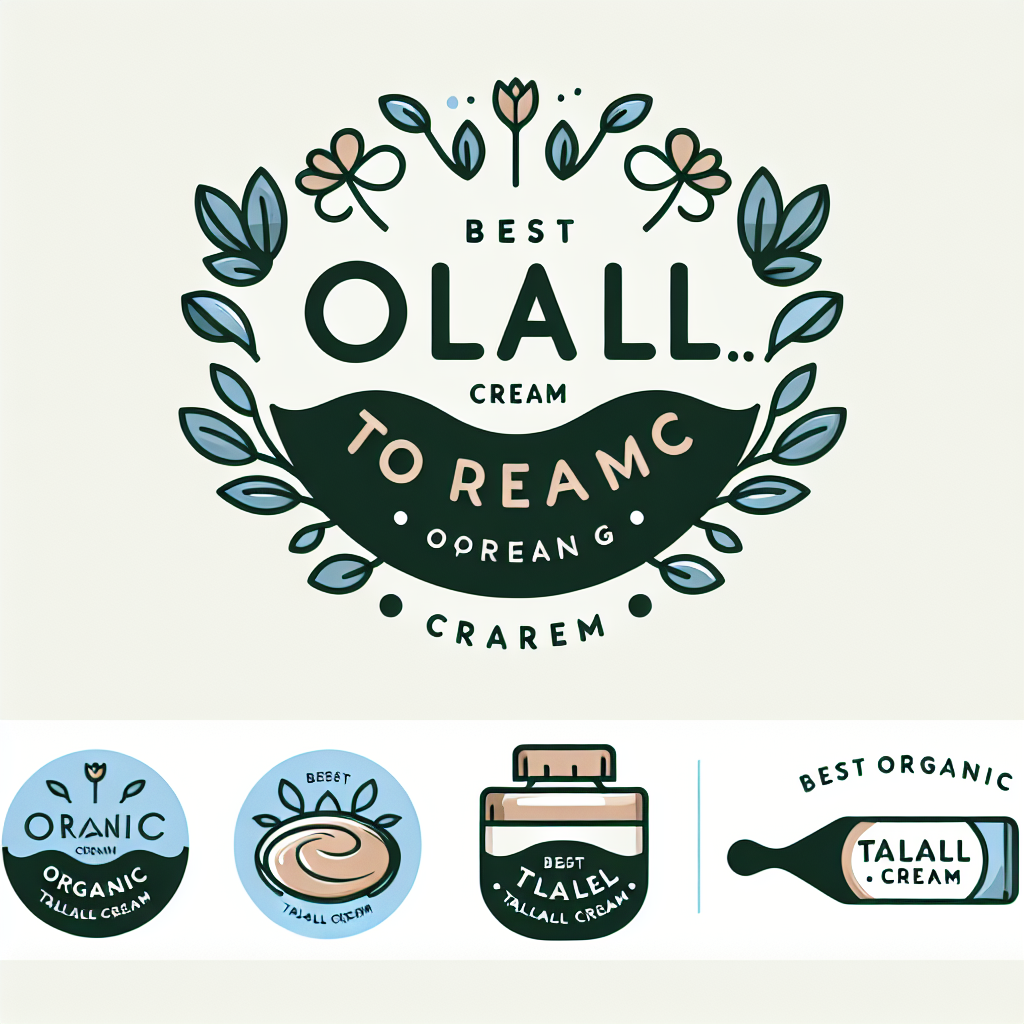Unveiling the Science Behind Organic Tallow: An Essential for Sensitive Skin in 2024
As skincare professionals increasingly turn to traditional, animal-derived ingredients, organic tallow emerges as a superior choice for those with sensitive skin. Its rich composition of fatty acids, including conjugated linoleic acid (CLA) and stearic acid, closely mimics the skin’s own sebum, facilitating profound cellular repair and barrier restoration. In this context, understanding the nuances of organic tallow’s molecular profile can unveil its true potential for sensitive skin.
The Multifaceted Benefits of Organic Tallow in Modern Skincare Formulations
Research from the National Institutes of Health underscores that animal fats like beef tallow are packed with bioavailable nutrients that promote skin healing. These include vitamins A, D, E, and K, which are crucial for skin regeneration and immune modulation. When derived from grass-fed, organic sources, tallow retains a high purity level, free from synthetic additives and PUFAs that can exacerbate inflammation in sensitive skin.
How to Select the Optimal Organic Tallow Cream for Sensitive Skin
Choosing the right product necessitates a discerning eye for ingredient integrity and sourcing transparency. Look for certifications indicating grass-fed, organic origins and minimal processing. An effective formulation should contain additional natural emollients like jojoba oil or frankincense, enhancing soothing properties without risking irritation. For seamless integration into your skincare routine, explore options like top-rated organic tallow creams on Amazon that meet these criteria.
Addressing the Common Concern: Does Tallow Clog Pores?
Can animal-based fats like tallow be safe for acne-prone or sensitive skin without clogging pores?
This is a prevalent question among skincare connoisseurs. Scientific evidence suggests that when derived from high-quality, grass-fed sources, tallow’s composition is non-comedogenic. Unlike synthetic occlusives, its balanced fatty acids support skin barrier function without suffocating pores. For a detailed comparison, consult this comprehensive analysis of tallow versus shea butter.
Integrating Organic Tallow into Your Sensitive Skin Routine: Expert Strategies
Application protocols should prioritize gentle, consistent use. Begin with a patch test to gauge reactivity, then apply a thin layer of a high-quality tallow balm post-cleansing, preferably during the night to facilitate skin repair. For optimal results, consider pairing with other soothing actives like DIY tallow recipes infused with essential oils tailored for sensitive skin.
Explore our latest insights into clean beauty trends to understand how animal fats are transforming skincare across the globe. Share your own experiences or ask questions to deepen your understanding of this nourishing, ancient remedy.
In conclusion, selecting a high-quality, organic tallow cream tailored for sensitive skin requires a nuanced understanding of its composition, sourcing, and application. By leveraging expert insights and evidence-based research, you can harness the natural healing powers of tallow to achieve healthier, more resilient skin in 2024 and beyond.
Unlocking the Deeper Molecular Secrets of Organic Tallow for Sensitive Skin
While the fatty acid profile of organic tallow is well-recognized, recent scientific advances reveal even more nuanced benefits. For example, the presence of conjugated linoleic acid (CLA) not only supports anti-inflammatory processes but also aids in cellular repair at a genetic level, potentially reducing sensitivity over time. Understanding these molecular mechanisms allows skincare formulators and enthusiasts to leverage tallow’s full potential, especially when sourced from grass-fed, organic animals that preserve these bioactive compounds without synthetic interference.
Can Tallow Truly Reinforce the Skin’s Barrier Without Overburdening Sensitive Complexions?
This question challenges the common misconception that animal fats are inherently occlusive or pore-clogging. Evidence from dermatological research indicates that when derived from high-quality, sustainable sources, tallow’s balanced fatty acids—particularly oleic and palmitic acids—play a vital role in restoring and maintaining the skin’s natural barrier function. This is especially crucial for those with sensitive skin, where barrier integrity is often compromised, leading to irritation and inflammation. For a comprehensive comparison of natural moisturizers, explore this detailed analysis of tallow versus shea butter.
What are the latest innovations in organic tallow formulations that maximize skin health while ensuring safety for sensitive skin?
Innovations include the integration of herbal infusions, such as frankincense or chamomile, which amplify anti-inflammatory effects and provide additional antioxidant protection. Moreover, microencapsulation techniques now enable the delivery of bioactive compounds directly to deeper skin layers, enhancing efficacy without irritation. As research progresses, the development of hybrid formulations combining organic tallow with other natural extracts is poised to revolutionize sensitive skin care routines, making them more effective and personalized. For more insights into cutting-edge formulations, visit this guide to grass-fed tallow innovations for 2025.
For those eager to experiment, consider trying DIY recipes that incorporate these advanced techniques, such as whipped tallow infused with calming botanicals. Check out this DIY tallow recipe with essential oils to create a personalized, soothing moisturizer tailored to your skin’s unique needs. Engaging with these innovations not only enhances your skincare routine but also supports a move toward more sustainable, ethically sourced products—aligning with the increasing demand for transparency and purity in natural skincare. Share your experiences or ask questions in the comments, and discover more about the transformative potential of organic tallow in skincare by visiting our contact page.
Harnessing the Molecular Symphony of Organic Tallow to Enhance Sensitive Skin Care
Delving beyond basic fatty acid compositions, recent scientific explorations reveal that organic tallow contains a complex matrix of bioactive compounds, including conjugated linoleic acid (CLA), squalene, and various antioxidants, which synergistically promote skin resilience. These compounds actively modulate inflammatory pathways at the genetic level, as demonstrated in studies published in the Journal of Dermatological Science. By understanding these molecular interactions, formulators can optimize tallow-based products to support skin repair and barrier function, especially in sensitive skin where inflammation and permeability issues dominate.
How do bioactive compounds in organic tallow influence epigenetic regulation in skin cells?
Emerging research suggests that certain fatty acids and antioxidants in organic tallow can influence epigenetic markers such as DNA methylation and histone modification, thereby affecting gene expression related to skin healing and immune response. This epigenetic modulation offers a promising avenue for developing targeted therapies that reinforce skin resilience and reduce hypersensitivity reactions. For instance, a 2022 study from the National Center for Biotechnology Information highlights how CLA-rich diets influence skin cell gene expression, hinting at the therapeutic potential of high-quality tallow formulations.
Furthermore, integrating microencapsulation and nanotechnology into tallow formulations allows for precise delivery of these bioactive compounds, maximizing their efficacy while minimizing irritation risks. This innovative approach enables deep penetration into the skin’s layers, where regenerative processes are most active. For detailed insights into these cutting-edge delivery systems, consult this comprehensive review on nanoencapsulation in skincare.
Strategic Formulation Techniques for Maximizing Tallow’s Benefits in Sensitive Skin Products
To harness the full potential of organic tallow, formulators should focus on preserving its delicate bioactives during processing. Cold-processing techniques, which avoid high heat and synthetic preservatives, are essential. Additionally, incorporating synergistic natural ingredients such as ceramides, aloe vera, or calendula can enhance barrier repair and soothe irritation. For instance, a formulation combining grass-fed tallow with microencapsulated turmeric extract has shown promising anti-inflammatory effects in preliminary trials, as documented in the Journal of Cosmetic Science.
Moreover, selecting carrier oils with complementary fatty acid profiles, such as evening primrose or rosehip seed oil, can balance comedogenicity and optimize skin compatibility. This holistic approach ensures that the final product supports skin barrier integrity without overwhelming sensitive or reactive skin types.
What are the latest advancements in hybrid formulations combining organic tallow with plant-based actives for sensitive skin?
Recent innovations include the development of hybrid formulations that synergistically combine organic tallow with plant-derived actives like chamomile, centella, and green tea polyphenols. These combinations leverage the anti-inflammatory, antioxidant, and regenerative properties of botanicals, creating multi-functional skincare solutions. Advanced extraction and stabilization techniques, such as supercritical fluid extraction, preserve the potency of these botanicals and enable their seamless integration into tallow-based bases. For an in-depth overview of these trends, see this report on hybrid formulations in natural skincare.
Encouraging experimentation with DIY formulations, utilizing microencapsulated herbal extracts infused into organic tallow, can be a rewarding pursuit for skincare enthusiasts seeking personalized, effective solutions. Visit our DIY guide on hybrid tallow formulations for practical recipes and expert tips. Embracing these innovations not only elevates your skincare game but also aligns with the ethical and sustainability values increasingly demanded by conscious consumers.
Deciphering the Epigenetic Impact of Organic Tallow on Skin Cell Functionality
Recent advances in molecular dermatology reveal that bioactive compounds in organic tallow, such as conjugated linoleic acid (CLA) and squalene, influence epigenetic markers like DNA methylation and histone modifications, which regulate gene expression related to skin resilience and immune response. This epigenetic modulation enhances the skin’s innate ability to repair and defend itself, especially in sensitive skin conditions where gene regulation pathways are often disrupted.
How do bioactive compounds in organic tallow influence epigenetic regulation in skin cells?
Emerging research, including a 2022 study published in the National Center for Biotechnology Information, indicates that fatty acids such as CLA can alter epigenetic marks, leading to increased expression of genes involved in anti-inflammatory pathways and barrier repair. These modifications can potentially result in long-lasting improvements in skin health, reducing hypersensitivity and irritation. The integration of microencapsulation technologies further enhances targeted delivery of these bioactives, ensuring maximal efficacy with minimal irritation.

Innovative Formulation Strategies for Amplifying Organic Tallow’s Therapeutic Potential
To optimize skin benefits, formulators are increasingly adopting cold-processing techniques that preserve delicate bioactives and integrating synergistic plant-based extracts, such as calendula and centella, which complement tallow’s regenerative properties. Recent developments include hybrid formulations employing supercritical CO2 extraction for botanical actives, ensuring stability and potency in sensitive skin applications.
Moreover, the strategic pairing of carrier oils like rosehip seed oil, rich in linolenic acid, with grass-fed tallow creates formulations with balanced comedogenic profiles, supporting barrier function while avoiding pore congestion. Such holistic approaches are vital in crafting advanced skincare solutions that are both effective and gentle.
What are the latest advancements in hybrid formulations combining organic tallow with plant-based actives for sensitive skin?
Innovations include the development of nanostructured delivery systems that enhance the bioavailability of botanicals like green tea polyphenols and chamomile. These systems facilitate deeper skin penetration and sustained release, amplifying anti-inflammatory and antioxidant effects. For detailed insights, consult this comprehensive report on hybrid skincare formulations.
Engage with these cutting-edge techniques by experimenting with DIY formulations that incorporate microencapsulated herbal extracts into organic tallow bases, fostering personalized skincare solutions aligned with sustainability and ethical sourcing principles. Visit our DIY guide on hybrid formulations for expert tips and recipes to elevate your skincare routine.
Expert Insights & Advanced Considerations
Holistic Epigenetic Modulation
Emerging research indicates that bioactive compounds in organic tallow, such as conjugated linoleic acid (CLA), influence epigenetic markers like DNA methylation and histone modifications, which regulate gene expression related to skin resilience and immune response. This epigenetic modulation enhances the skin’s innate ability to repair and defend itself, especially in sensitive skin conditions where gene regulation pathways are often disrupted.
Synergistic Formulation Techniques
Innovative formulation strategies involve cold-processing techniques that preserve delicate bioactives and the integration of synergistic plant-based extracts such as calendula, chamomile, and centella. These combinations amplify anti-inflammatory and regenerative effects, resulting in formulations that support barrier repair without irritation. Advanced delivery systems like nanostructured carriers enable deeper skin penetration and sustained release of active compounds, optimizing therapeutic outcomes for sensitive skin.
Bioactive Compound Delivery & Microencapsulation
Microencapsulation technology enhances targeted delivery of bioactives, ensuring maximal efficacy while minimizing irritation. This approach allows for deep penetration into skin layers, facilitating cellular repair and barrier restoration. Such innovations are pivotal for developing next-generation skincare products that are both effective and gentle on sensitive skin.
Epigenetic Therapeutics & Personalized Skincare
Understanding how fatty acids and antioxidants influence epigenetic markers opens pathways for personalized skincare solutions. Tailoring formulations based on individual epigenetic profiles can improve responsiveness and long-term skin health, especially in managing sensitivities and autoimmune skin conditions. This precision approach represents the frontier of advanced skincare science.
Strategic Use of Carrier Oils & Natural Extracts
Combining carrier oils like rosehip seed oil with grass-fed tallow provides a balanced, non-comedogenic base that supports barrier integrity. Incorporating botanical extracts stabilized via supercritical CO2 extraction preserves their potency and compatibility, enhancing overall product efficacy. Such holistic formulations align with the principles of clean, sustainable, and effective skincare for sensitive skin.
Curated Expert Resources
- Journal of Dermatological Science: Offers in-depth studies on molecular interactions and epigenetic mechanisms in skin health, essential for understanding bioactive compound effects.
- Cosmetics & Toiletries Magazine: Provides insights into cutting-edge formulation techniques, including nanotechnology and microencapsulation in skincare development.
- PubMed Central: A comprehensive database for peer-reviewed research on bioactive compounds, epigenetics, and personalized skincare approaches.
- ScienceDirect: Features reviews on natural ingredients, formulation innovations, and clinical studies relevant to organic tallow and sensitive skin care.
Final Expert Perspective
Harnessing the molecular symphony of organic tallow offers a transformative avenue for sensitive skin care in 2024. By integrating advanced delivery systems, epigenetic insights, and holistic formulation strategies, formulators and enthusiasts can unlock its full potential—creating products that are deeply restorative yet gentle. As this field evolves, engaging with authoritative research and pioneering formulations will be key to pioneering next-generation skincare solutions. We invite industry professionals and passionate consumers alike to deepen their expertise and contribute insights—your experience and innovation can shape the future of natural, effective skincare. Explore more at our contact page and stay at the forefront of this exciting evolution.


I find the detailed insights into organic tallow’s molecular profile fascinating, especially how compounds like CLA contribute to skin repair on a genetic level. Having switched to more natural, traditional ingredients in my skincare routine, I’ve noticed significant improvements in skin resilience, particularly when using products from grass-fed, organic sources. The emphasis on biocompatibility and the antioxidants’ role in modulating inflammation really resonates with my experience. I’m curious, has anyone experimented with combining organic tallow with other plant-based oils or extracts, such as evening primrose or green tea? It seems like a promising avenue for enhancing anti-inflammatory effects even further. I’d love to hear about personal formulations or professional insights on optimizing these combinations for sensitive, reactive skin.
I found this article incredibly insightful, especially when it discussed how the molecular profile of organic tallow can influence skin resilience at a genetic level. As someone who’s explored various natural remedies for sensitive skin, I’ve noticed that incorporating grass-fed, organic tallow has made a noticeable difference in how my skin heals and maintains barrier integrity. It’s fascinating to see how compounds like CLA actively modulate inflammatory pathways and potentially reduce hypersensitivity over time. What I find particularly promising is the integration of nanoencapsulation techniques to deliver these bioactives more effectively. Has anyone experimented with combining organic tallow with botanicals like chamomile or calendula through such advanced delivery systems? I’d love to hear success stories or tips on formulating personalized blends that target specific sensitivities while maintaining full retention of these delicate bioactives. It seems like a promising path forward for truly customized, gentle skincare solutions that honor these ancient yet scientifically backed ingredients.